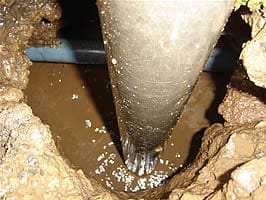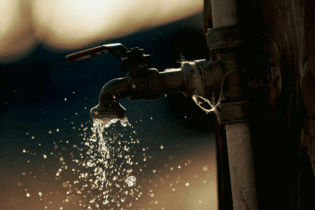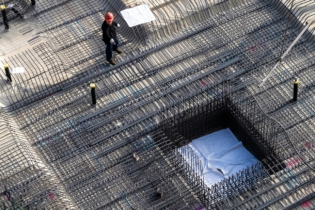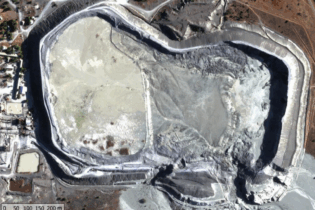A firm of consulting engineers and scientists has carried out feasibility studies for 15 new schools inthe Western Cape to establish whether enough groundwater is available for this purpose. Debbie Besseling speaks to SRK Consulting about the project.
As part of efforts by the Department of Transport and Public Works in the Western Cape to reduce the amount of water abstracted from rivers and dams, groundwater resources are being investigated as a means of irrigating sports fields and other open spaces at newly built schools in the province. According to Leon Groenewald, principal hydrogeologist at SRK, the company recommended that 12 of the schools take the process further – by drilling production boreholes and conducting pumping tests to establish the sustainable yield of the boreholes. “Once this is done, we are in a position to make recommendations about how much water can be sustainably abstracted,” says Groenewald. He adds that eight out of the nine boreholes drilled so far have sufficient water for irrigation; the sustainable yields of the boreholes range from 0.83 ℓ/s to 8.3 ℓ/s. While the initial costs of developing the infrastructure to abstract groundwater is fairly high – about R180000 to drill each borehole, test the water and install the pump – this is cheaper in the long run than tapping into municipal water for irrigating large areas.“To ensure the highest chance of striking groundwater, it is vital that the investigation includes a hydro census and detailed geophysical survey before drilling begins, ”explains Groenewald.
“It’s essential that the person interpreting the data from the investigation has experience in these kinds of projects, so that we avoid drilling dry boreholes,” he adds. The groundwater investigation is completed in the early stages of the contract so that the yield of the borehole can be assessed, to determine the water requirements of the playing fields, which if higher than the actual supply, causes a problem. “This problem can be overcome by installing a number of storage tanks,” Groenewald adds. “The tanks are filled during the night and drained during the day by the irrigation system which allows the quantity of water extracted per day to be measured at no more than 20 000 ℓ”. Apart from alleviating the pressure on dams to supply water to these schools, the schools’ green areas provide a calming atmosphere and restful surroundings for the learners to relax and talk to one another and to play games. It also improves the aesthetic look of the surrounding suburbs which are often characterised by dull, sandy scenery; and helps prevent wind erosion.






